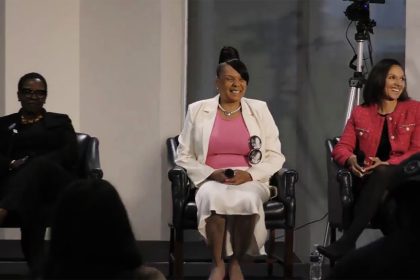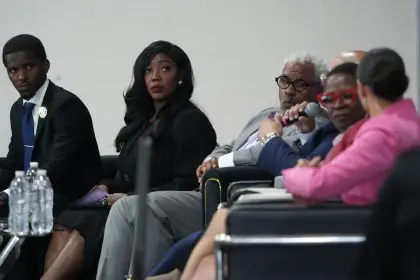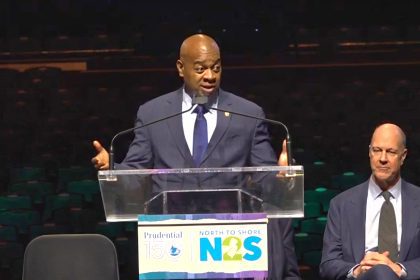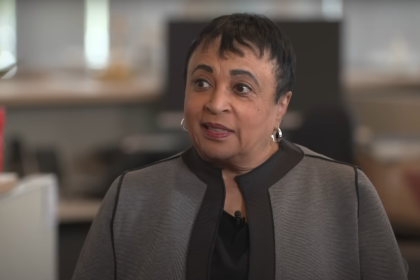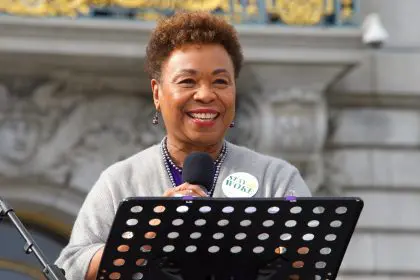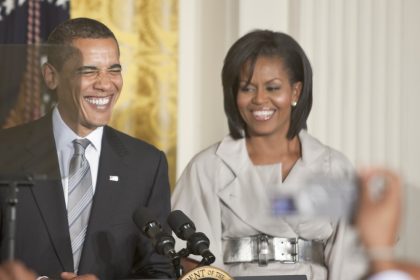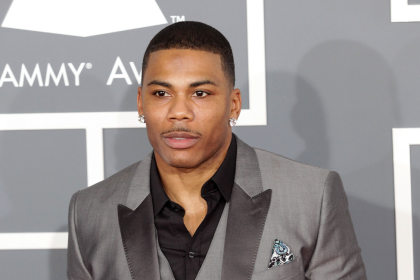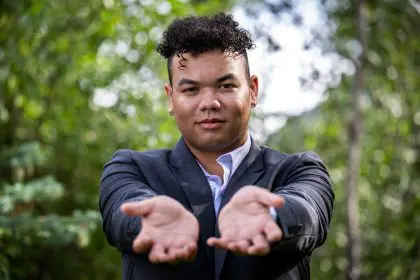 When it was first announced that Jesus “Chuy” Garcia was going to be a candidate for mayor of the city of Chicago, many Chicagoans of varying hues and progressive leanings let out a tempered sound of joy. They believed in Garcia and what he represented, but they wondered if there was enough time to cobble together the multiethnic collaborative effort that would be needed to force Rahm Emanuel into a runoff? Amid tepid opposition, a committed few dove headfirst into the campaign, lending their relationships, intellect and expertise to a man they believed to be the anti-Emanuel: someone who would listen, who would compromise, who would work in the best interests of all Chicago citizens and, in this instance, specifically the Black ones.
When it was first announced that Jesus “Chuy” Garcia was going to be a candidate for mayor of the city of Chicago, many Chicagoans of varying hues and progressive leanings let out a tempered sound of joy. They believed in Garcia and what he represented, but they wondered if there was enough time to cobble together the multiethnic collaborative effort that would be needed to force Rahm Emanuel into a runoff? Amid tepid opposition, a committed few dove headfirst into the campaign, lending their relationships, intellect and expertise to a man they believed to be the anti-Emanuel: someone who would listen, who would compromise, who would work in the best interests of all Chicago citizens and, in this instance, specifically the Black ones.
Jonathan Peck, Phillip Thomas, and Bryan Echols helped coordinate the efforts of these committed Black leaders, choosing to name the coalition they helped to coordinate Black Leaders 4 Chuy. Now that Garcia has made it to a runoff, and with all three of them no longer working directly on the campaign, we wondered why they had decided to give their all to someone outside of the African American community. Here are their responses.
What was the genesis behind Black Leadership for Chuy and why was it a necessary piece of his campaign?
Phillip Thomas: Because Chuy’s campaign got started so late and had so little money, an efficient, nimble voter mobilization effort was needed. Black Leaders for Chuy became that effort. It brought together leaders who themselves were highly networked. They formed the nucleus of a volunteer base that fed into field offices and were Chuy’s ambassadors into a Black community, a community whose reaction to Chuy’s candidacy ranged from enthusiastic, to skeptical, to even openly hostile at the very idea of a Mexican American mayor of Chicago.
Jonathan Peck: Several Black leaders through our extensive networks began to have conversations about the need to galvanize Black leadership support for Chuy while understanding the incredible challenges we would face within the Black communities of metropolitan Chicago. I met with Rudy Lozano Jr., a close and dear friend of mine, and we agreed together that it was important to launch a formation like BL 4 Chuy.
Bryan Echols: The original starting point began in offices where a multi-ethnic group of people all came together to create a counterpart to Young Progressives for Chuy. This was our first meeting. By this time, Jonathan had already been meeting consistently with Rudy Lozano Jr. and the YP4C and he invited me to meetings with this group. From there we felt the need to create BL4C.
Who were some of the leaders and why did you, as an individual, decide to get involved?
PT: I’ve known Chuy for many years through his economic development work at Enlace in Little Village and his advocacy work at UCCRO. When I heard Chuy was running I thought three things: he could win, he’d make a great mayor, and I want to help. I knew through his organizing work he had a skilled, highly diverse cadre of supporters spread thoughout the city that love and respect him. I also knew that he was smart and right on the issues.
JP: Robert Spicer, Camille Williamson, Sandra Sosa, Phillip Thomas, Alex Navedo, Ronald Gordon, Lamont Robinson, Jeremy Wade, John Zeigler, Cheryl Graves, Michael Bennett, Keith Lewis, Mildred Williamson, Willie Williamson, Bryan Echols and Atara Young.
I decided to get involved because of my commitment to Chuy Garcia himself and my longstanding relationship with him. I decided to get involved because we have an opportunity to impact the lives of children, youth and families of Chicago, and also, because of my two decades plus of relationships and work across the city of Chicago advancing a progressive agenda focused on improving the quality of life of Chicagoans.
BE: I had worked with Chuy and an entity called United Congress of Community and Religious Organizations back in 2008. This group was created to build Black-Brown alliances and to become an apparatus that could drive policy on behalf of marginalized communities. To most, these were unlikely allies fighting with and for communities where there seemed to be no perceived points of intersection or common interests. Through reframing, we found out that our communities were more alike than different. We all came from histories that fought against white dominance and hegemony. We learned the value of one another’s struggles and we created space to share our lived experiences.
As I child, I grew up watching the “Council Wars” and Chuy was one of the many characters who I remembered fighting with and for Mayor Washington. Even as I child, I saw the value of the Black-Brown alliances, mainly because it was my personal reality. I grew up in an ethnically diverse community so this was normal to me. As I grew up, I realized that what was normal to me was actually abnormal to most. The Rainbow Coalition made sense to me as a child. When I met Chuy, he was exactly how I thought he would be.
What role had you played in Chuy’s campaign?
PT: I’d been working special projects, a kind of a “brother at large” working with public policy, fundraising, social media, messaging, opening field offices, voter turnout and staffing Chuy and Evelyn at public events, all with a primary focus on the African American community.
JP: I was hired as the director of organizing and special projects. My focus was to build out an external formation of support for Chuy within the Black communities and also build intergenerational support in tandem with Young Progressives for Chuy. But not exclusively. I also assisted the campaign in addressing key challenges of resources for the South Side, primarily, as well as the West Side field offices.
BE: I was a founder of Black Leaders 4 Chuy and regional field director for the southeast region. I have recruited and convinced many of my personal friends to support Chuy in many ways ranging from church visits, meeting with organizations, arranging teas with his wife Evelyn to meet with concerned mothers and grandmothers from the community, and scheduled community meetings for him to do outreach. I even served as janitor of my local office! As a regional field director, I was responsible for producing numbers for Chuy to get us to a runoff and we succeeded. I recruited and trained volunteers as well. My main goal was to create an office that would attract and keep volunteers. When skilled volunteers would come in to the office, my goal was to make the office feel like it belonged to them. I shared assignments and allowed them to do what they did best. If someone was great at phone-banking, I definitely was not going to make them door knock and vice versa. If someone wanted to do data entry, I found places for that as well. My management style has never been to micromanage, and in this case it worked.
4) What victories do you claim direct responsibility for that helped get Chuy in the runoff?
PT: Black Leaders for Chuy was the primary means by which Chuy was introduced to the African American community, particularly in the very beginning of the campaign. It brought together African American community leaders from the South and West sides in a way that rarely happens in Chicago. Without Black Leaders for Chuy, the African American voter turnout would have undoubtedly been even lower than it was.
JP: BL4Chuy was responsible for getting Chuy into the Black churches across the South and West Side … approximately 25 plus churches. We were responsible for scheduling and providing staffing and other supports as needed for additional events in the areas of: house meetings, house fundraisers, candidate forums, field offices events, networking the political coalitions and alliances in the Black communities, and, ultimately, expanding the echo chamber for Chuy [in] regard to progressive policies that came from the needs of ordinary people.
BE: Our turnout was strong in the 10th Ward, as we had very strong Latino allies in place in the ward that once belonged to Ed Vrdolyak. I had a crew of volunteers there who were amazing. They helped me to work on my Spanish and we often spoke ‘Spanglish’ to one another. For the cause, we met one another half way. We delivered in the 5th Ward. The “Hyde Parkers” came through. In this ward, we out performed Rahm. Turn out was 10 percent higher in Hyde Park than the citywide average. And Chuy did remarkably well — in this area, he got 3,047 votes to Rahm’s 3,029. That had everything to do with our many volunteers and U of C students who committed many days during the election cycle. These are both South Side communities. This was my primary goal — getting to the runoff. Mission accomplished!
What do you think, as the runoff approaches, are issues that need to be addressed by his campaign in order to foster greater unity between Black and Brown communities?
PT: Jobs and economic development on the South and West sides of the city are paramount in importance. Much of the tension between between the communities stems from perceived competition for jobs and affordable housing. When so called minority communities coalesce around issues of mutual benefit, they are a potent political force. I think arts and culture are a possible bridge. Our common roots run deep. We really just represent different stops on the triangular slave trade.
JP: Chuy’s visibility needs to increase in Black communities across Chicago. His overall policy platform needs to speak to the issues and needs that Black and Brown people face every day. He needs to revamp his criminal and juvenile justice policies to be more responsive to the issues of police brutality, reparations, and any other major challenges that these communities face. His call for increasing police presence is not the answer and will not effectively reduce crime, but rather create even more distrust and friction between Black communities and law enforcement and, ultimately, the fifth floor. He needs to clarify his economic development platform and address the major issue of 91 percent plus unemployment among Black youth. Economic revitalization of neighborhoods is essential and inclusion of those communities who have been locked out of economic development opportunities: i.e., black contracts, businesses, youth employment etc. There’s a need to equitably distribute resources to neighborhood schools and end the siphoning off of money into the privatization of the public schools. Chuy needs to address the decimation of the youth development agencies and resources in the neighborhood. Chuy also needs to address the TIF issue and shut off the pipeline to corporate economic development using taxes and re-establish those funds for the building of economic infrastructure in struggling neighborhoods on the South and West side. Chuy also needs to come out with a genuine solidarity for an effective and long-standing Black and Brown alliance building into the 21st century.
BE: Chuy must show genuine respect for the Black community and the votes they control. His legacy with the Washington administration is real and cannot be taken away from his work. Even with a strong team of Black leaders at his disposal, they have not yet been used to their full potential. They will be the X factor in the run-off. He must truly address unemployment in the Black communities, along with how he plans to reopen closed schools, how they will be paid for, and he must address in a detailed fashion how he plans to bring economic development opportunities in our communities. He must also have senior staff that is at least 30 percent Black. The Black-Brown alliance is currently fragile, and one miscue could set the entire progressive movement back 20 years. He must respect that legacy and those who currently fight within those boundaries.
He must also show communities the benefits, through his own work and his current allies, of how Black-Brown alliance building can be mutually beneficial for these marginalized communities. They are strongest when they are not pitted agaist one another…when they plan, organize, and mobilize for a common goal. He has to show that this is real and very possible based on all that he has achieved.
Finally, he will need to clarify his stance on adding 1,000 police officers to a community that has not had the greatest history with the Chicago Police Department. In that vein, he must also address the offline interrogation sites in Homan Square. He must also take a stance on the decriminalization of marijuana, because arrests for the possession of marijuana disproportionately affect communities of color.
Why do you believe Rahm Emanuel isn’t a good mayor for the city of Chicago overall, and more specifically, for the communities that you consider yourself an advocate for?
PT: I believe that government should be fair, open and accountable to the public. I think the current administration is lacking in those regards. The taxes and fees are regressive. He’s overemphasized downtown development at the expense of neighborhoods and mis-used the TIF program. His school closings were draconian and disastrous. And he hasn’t moved the needle on contracting for city business for Black-owned firms. He seems to be tone deaf to the concerns of African American communities on the South and West sides.
I grew up in Englewood and have lived all over the city and many parts of the country. I think Black people want what every one else wants: good health, freedom and prosperity. I’m aligned with those seeking social and economic justice for all.
JP: Rahm has proven himself prior to being mayor as a man whose personal and professional interests are not aligned with the overwhelming interests of the vast majority of Chicagoans. He has been consistent in thwarting any efforts to improve the lives and conditions of Chicagoans at all levels of policymaking and governance. His style of leadership is counterintuitive to what Chicago needs in terms of uniting a city in becoming one Chicago … where fairness, equity, and justice are the core values that are implemented through policies and governance strategies. He has been an active contributor to the decimation of Black lives and decreasing the opportunity and access for working and low-income families to what Chicago has to offer. He is solely interested in expanding his and his closest friends’ wealth and influence at the expense of the majority of Chicagoans.
BE: I could go on and on here, but I will begin with the closing of the 50 schools and how that not only devastated our children and our community, but also how it decimated the number of Black teachers who strengthen our middle class. His use of TIFs are being misused by using our hard-earned tax dollars for luring and enticing his wealthy investors into doing business here in the city. FInally, under his watch, our bond ratings have gone down.
Rahm’s inability to work with and be a proactive listener and doer for our entire community has proven to be disastrous for Black communities without access. His work has strengthened the Black political elite, but not the masses. He too takes advantage of the Black vote based on the ‘hood pass that he was given. Too many of us have not done our homework on Rahm. Many of us are unaware of the 128 times he has voted against the Congressional Black Caucus. His attitude toward the community that I serve has never been genuinely friendly.

